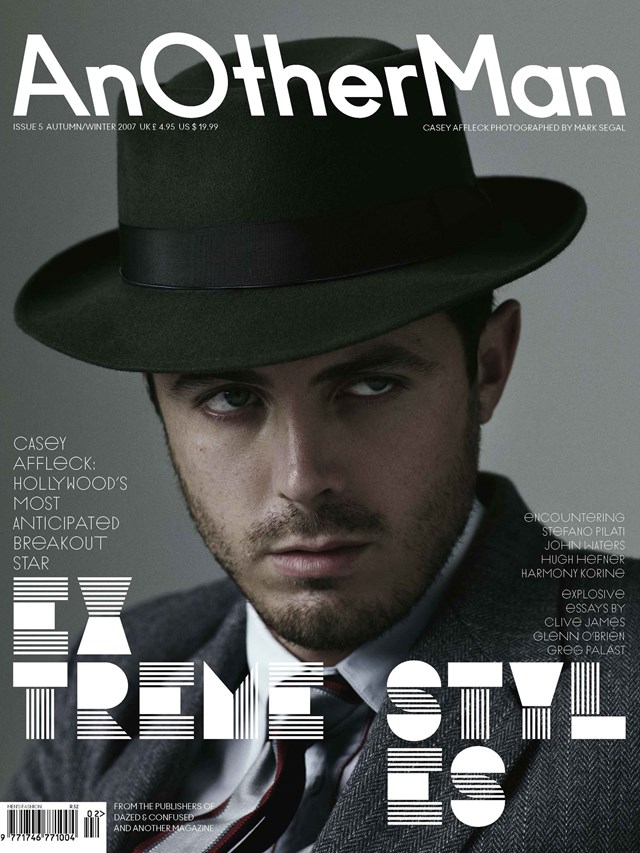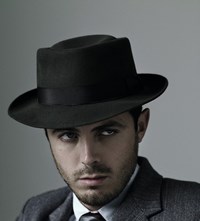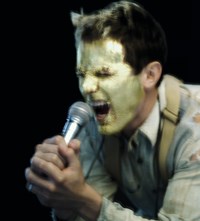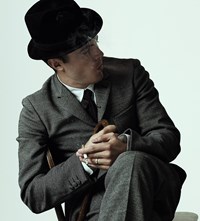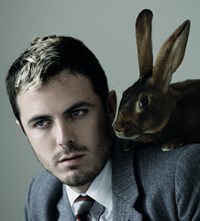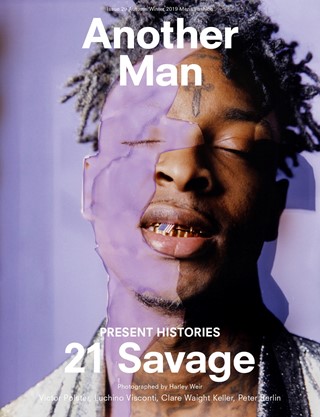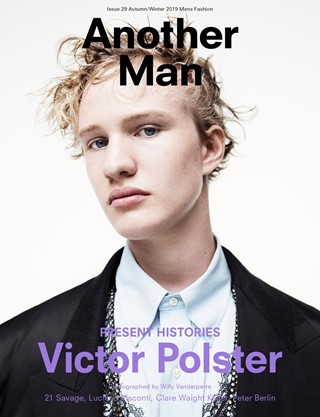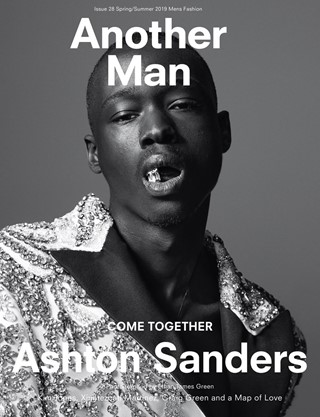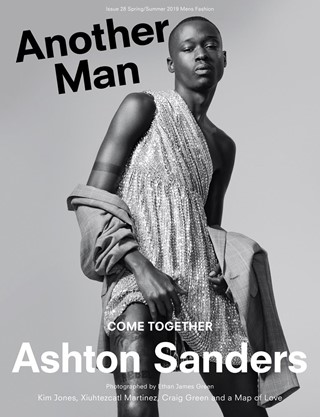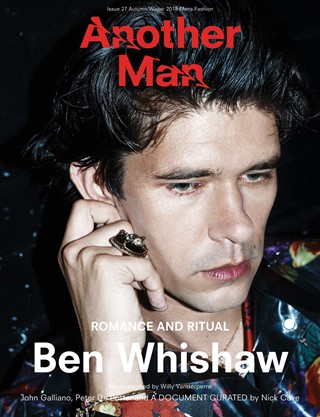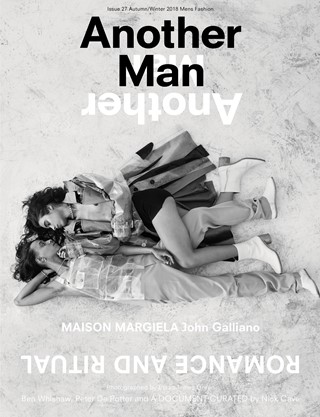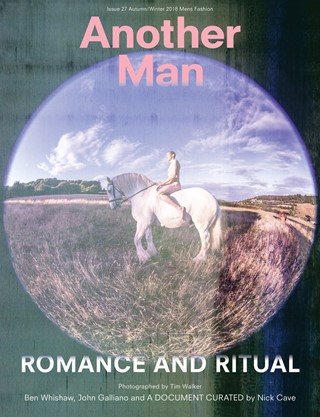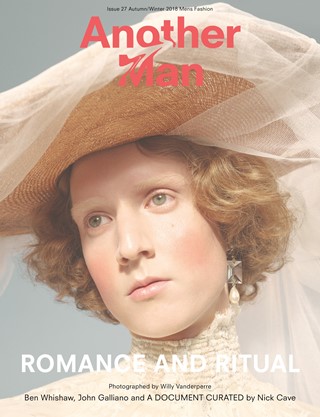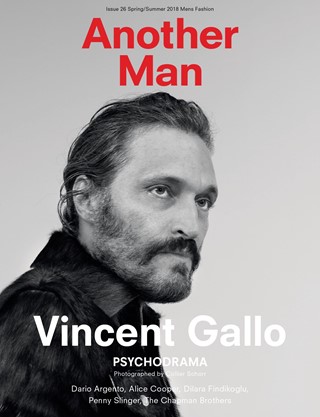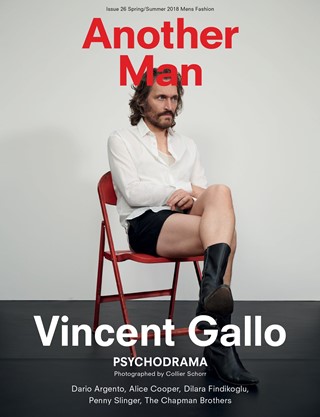Casey Affleck
“I wonder what Jesse James was really like? How special he really was. In the pictures of him, he looks like a scrappy kind of guy, you know? I wonder what it was about him that people latched on to. Was he that magnetic? Was he fearless? Or was he just a good shot?”
It’s the height of summer and Casey Affleck is talking about his new film, The Assassination of Jesse James by the Coward Robert Ford. He plays the wide-eyed and dangerous Robert Ford to Brad Pitt’s troubled, angst-ridden Jesse James. The 32-year-old actor – younger brother of Ben and husband to Summer Phoenix – is very much the film’s star, shining alongside an impressive Pitt as they square up to each other in the freezing, barren landscape of 19th-century America. Affleck gives a nerve-wracking performance as Ford, a young man who obsesses over the legendary robber Jesse James, joins his gang and eventually shoots his hero dead when he boils over from a lethal mix of admiration, jealousy and resentment. If Pitt’s oversized fur coat is a scene-stealer, then so are Affleck’s very cool three-piece suits, topped off each time with a neat little hat and a well-worn gun-belt.
Affleck, today dressed more for the 21st than 19th century in jeans, white t-shirt and pumps, with a streak of peroxide through his otherwise dark brown hair, has just made the three-hour drive to New York from his home upstate. “It’s a good place for the kids to be able to run around,” he explains as he settles on the terrace of a Tribeca restaurant for lunch. He’s arrived in town for a night’s stay with his wife and three-year-old son and now he wants to know if The Assassination of Jesse James is any good, as he hasn’t yet seen the film himself. He shouldn’t worry. For Affleck, who’s a young veteran of hip American movies such as Gus Van Sant’s Gerry and Steve Buscemi’s Lonesome Jim, and who for the last six years has been a solid presence in Steven Soderbergh’s hugely successful Oceans series, it’s a film that confirms him as one of America’s most interesting young actors and, crucially, one who’s ready to carry a major film on his own back. He’s had a good career so far, but inevitably comparisons have been made with his older brother Ben – comparisons that usually see Casey tagged the more experimental, more indie, less visible sibling. But Affleck is hungry for more – he wants to keep progressing with each new performance.
“For whatever reason, probably good reasons, people often haven’t been willing to give me jobs with better scripts and better directors,” Affleck says. With no fear of talking honestly, he’s a quiet and serious soul, prone to mumbling and pausing for thought. Affleck hasn’t seen The Assassination of Jesse James partly because the final edit has only just been completed and partly because he’s terrified of seeing himself on screen. “It means days and weeks of feeling bad,” he says of avoiding his own performances. “But I want to outgrow that. Often the director wants you to share in the final film, so I think it’s a bit selfish and immature not to watch them.”
In conversation, Affleck is modest and dismissive of his talent – so much so that you’d barely imagine he’s been in the business for over a decade, since he first landed a small role in To Die For in 1995. Back then he was just 20 years old, new to Los Angeles and eager to work in cinema after a short stint studying physics at Columbia University. He’s full of self-criticism. “I still walk down the street and something will occur to me about something I did in a movie eight years ago, and I’ll be like, ‘Christ! Why did I do that? I should have done it like this.’” He reckons he’s never felt as confident as he did when he was acting at high school in his hometown of Boston in the late 80s and early 90s under the guidance of the same teacher as his brother Ben and his brother’s friend, Matt Damon. “It just so happened that the guy who taught theatre in our school was the kind of guy you hope your kids get for just one of their 12 years of education, someone who really inspires. Everyone in his class wanted to become an actor. Ben had him, Matt had him, I had him.”
Affleck’s first film was Van Sant’s excellent To Die For, in which he played a moody teenager opposite Joaquin Phoenix, now his friend and brother-in-law. Soon afterwards he acted in two movies with his brother: Kevin Smith’s Chasing Amy and Van Sant’s Good Will Hunting, the second of which won Affleck and Damon an Oscar for their script. He’s close to his brother, and earlier this year he acted opposite Morgan Freeman in Ben’s directorial debut, Gone, Baby, Gone, a thriller filmed in Boston. “I still kind of love Boston and feel like it’s home so I want to be able to share some of the things I like about the place.”
The last few years have seen Affleck slip into a neat pattern of making an Oceans movie for Steven Soderbergh every other year and collaborating on smaller, independent films in between. He still sounds slightly in awe of the luxury he encountered making the Oceans films, “There’s a lounge for the actors and everything’s so cushy. There’s no rush, everyone’s having a ball and you always finish ahead of schedule. It’s more like summer camp than a job.” That environment is a world apart from some of his more leftfield gigs, such as Gerry, an impressive, experimental film that saw him and Damon hook up with Van Sant to play two guys who get lost in the Californian desert and walk, and walk, and walk, as the sun’s heat slowly consumes them. It marked a sharp turnaround for Van Sant, who followed Gerry with the challenging Elephant and Last Days, and it brought Affleck even closer to the filmmaker who gave him his first break.
“I haven’t seen a movie of his I don’t like, and that’s pretty weird,” he says of Van Sant. “He’s also a close friend. I’ve learnt so much from him. He’s always been super inclusive and sometimes when he was making movies that I wasn’t in, he’d ask me to come and do this or that on the movie. I like him, I’d do just about anything he asked me to do.”
An experimental project co-written by him, Damon and Van Sant, Gerry showed Affleck to be a daring collaborator. Then, two years ago, he made another great little movie with Steve Buscemi behind the camera called Lonesome Jim, a script which writer James C Strouse wrote about leaving his small-town for the big city and then returning again, down on his luck, to live once more with his suburban family. Affleck played the writer’s alter ego, Jim, a 27-year-old who comes home with barely any energy or will left. The film shows exactly what Affleck is capable of: subtle performances in films in which a great deal is said with body language and, especially, the eyes. And it’s his eyes that do so much of the work in The Assassination of Jesse James. As his character becomes more and more obsessed with James, first fired by adulation and later by resentment, his gaze is that of the tortured fan, torn between wanting to embrace and attack his hero.
He is curious to know whether The Assassination of Jesse James will be a hit. He knows how much of a struggle there’s been between the film’s director, Andrew Dominik – a 40-year-old Antipodean, who made the violent prison film Chopper – and the studio, Warner Bros, who are no doubt surprised at the film they’ve got on their hands: an artful, complex western that favours psychology over shoot-outs. In short, they’ve got a big-budget art movie that might star Pitt and tell of the life and death of one of America’s most well-known folk heroes, but which ultimately recalls the films of Terrence Malick, or Robert Altman’s Pat Garrett and Billy the Kid.
What Dominik has done in adapting writer Ron Hansen’s novel for the screen is to play against the legend of Jesse James and present a man who suffers from the weight of his success and who may have been suicidal. The film runs to two-and-a-half hours indulging in slow cuts and long scenes, playing subtly with themes of light and dark, always careful to examine Ford’s fascination with James as the young lad moves from admirer, to gang-member, to killer.
When Affleck talks of the film, you can tell that he has enormous respect both for Dominik and for Pitt, who fought tooth and nail to support the filmmaker. “We had an enormous amount of resistance because he was trying to do something that wasn’t commercial. There was a lot of money on the line and a lot of people had seen the movie in a different way. He was always coming up against the powers-that-be. He relied on his formidable powers of persuasion, but he also had Brad. When we needed extra days to shoot, Brad paid for them. He always supported Andrew. It’s pretty admirable.”
Listening to Affleck talk so fondly of Pitt, who he first met on the set of Ocean’s 11 back in 2001, it’s not hard to draw parallels with the relationship between Robert Ford and Jesse James. There was an obvious inequality between Ford and James – James was the celebrity, Ford the younger accomplice. Surely Dominik, the film’s director, was keen to play on Pitt’s fame and Affleck’s relative anonymity. Perhaps Dominik knew that Affleck would be slightly in awe of Pitt and sought to use that tension to the film’s advantage. If so, it’s a wise move on his part that makes for a curious onscreen dynamic.
“Brad is like the biggest movie star in the world, right? And he just goes and does these movies? I mean that’s risking a lot,” argues Affleck, talking of Pitt’s willingness to make movies like Babel. “Most other movie stars are telling their agents, ‘Make sure the next one’s a big hit.’ But he doesn’t give a fuck. That’s who he is, I’ve known him a few years and I’ve never found him to be superior, just a genuinely nice guy who is sort of under-appreciated, because he is so famous that people lose focus.”
For Affleck, films are worth making only if they are worth watching. Many actors fake excitement when talking about the bad films they’ve made, but Affleck just shrugs. He mixes laid-back pragmatism with strong idealism and determination. One minute he admits that an actor sometimes has to take a gig – “I hold out as long as I can, until I have to work – and that is most of the time – but I’ll wait two years to take the best of what’s available to me” – and the next he’s celebrating the sort of director he will fight hard to work with. He tells a story about living in London a few years ago when his wife was making a film in the city, how he tried to persuade the director Michael Winterbottom to offer him the lead in Code 46. But wasn’t that character about 45 years old? “Yeah, but I tried to persuade him otherwise. We went out one evening and he was very gracious and indulged me. Then he gave the part to Tim Robbins.”
It’s now that Affleck’s wife, Summer Phoenix approaches the terrace we’re sitting on with their young son, Indiana. The boy jumps on his dad’s lap, brandishing a plastic sword and we wrap up our conversation. Two hours have gone by. Affleck feels he may have been a bit down during our chat, but it doesn’t feel that way. It’s refreshing to hear the truth from an actor, to hear of the downs as well as the ups, and not to have to endure the usual shiny optimism. Casey Affleck is a good actor, with strong roles behind him and, one suspects, even greater ones still to come. The Assassination of Jesse James has certainly shown him to be a talent of rare determination and presence.
